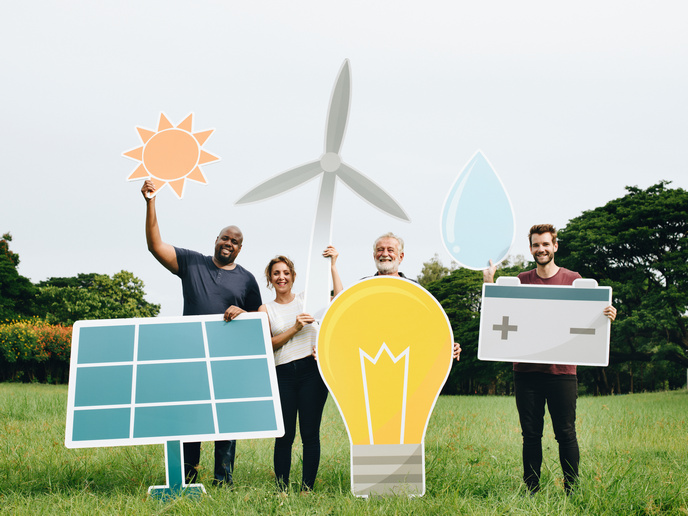Helping energy communities bolster Europe’s energy transformation
The EU’s plan to fundamentally transform Europe’s energy system in line with European Green Deal objectives can only be achieved through smart, decentralised and flexible energy generation and consumption. Part of the solution are energy communities that the EU-funded RESCHOOL project is promoting as a way to bring together and empower active consumers and prosumers as relevant energy stakeholders. Energy communities are typically organised by groups of individuals, neighbourhoods or local organisations that come together to advance renewable energy and sustainability. Their main goal being to generate social and environmental benefits rather than financial profits, energy communities play an important role in promoting a clean energy transition and mobilising citizen engagement. Energy communities provide platforms for citizens to collectively invest in solar panels, wind turbines or other forms of clean energy. This collective action not only yields direct benefits to citizens – through higher energy efficiency, lower electricity bills and more jobs – it also helps increase public acceptance of renewable energy projects and makes it easier to attract private investments. All of this smooths the transition to clean energy sources while putting citizens at the forefront.
The Amsterdam pilot
“[An energy community is] not a company. It’s not a government-based entity. It’s a collective of citizens with some self-rule and tries to deliver energy services to its members and participants,” emphasises energy community expert Jasper Klapwijk in an ‘Energy Post’ news item. Klapwijk is currently an advisor for RESCHOOL’s Dutch pilot on Sporenburg island in Amsterdam. The pilot’s goal is to enable the 540 households in the Sporenburg neighbourhood to generate and use their own energy as much as possible. “Through this cooperation, I use my neighbour’s solar production to charge my electric vehicle. He receives a small incentive because he doesn’t feed excess electricity into the grid. In turn, I pay a bit less because I consume the energy when it’s generated,” explains Hugo Niesing, the Amsterdam pilot’s site manager. “This benefits our finances, infrastructure, renewable energy growth, and the entire energy community.” RESCHOOL has another three pilot sites. The Spanish pilot is located in Girona and involves a total of 90 households, 30 public facilities and two local businesses in four villages. Its main goal is to enlarge photovoltaic plants, develop and improve storage systems and evaluate the impact of local grids. The Greek pilot in Athens and Rafina aims to unlock flexibility and explore new market opportunities with the participation of 40 citizens, six schools and two SMEs. Involving 1 500 apartments and 18 housing associations, the Swedish pilot takes place in Stockholm’s Hammarby Sjöstad energy community. It aims to build a power reserve together with other property owners as well as promote local renewable electricity production.
An informative visit
In October 2023, the RESCHOOL (Strategies and tOOls for Incentivization and management of flexibility in Energy Communities with distributed Resources) team visited the SunSud energy community in Brussels. As described in a news item, SunSud is Belgium’s first solar energy redistribution project in social housing set up in 2020 in a building of 110 social housing units in Brussels. The project has installed solar panels on the roof of the building, enabling its inhabitants to benefit from the cleaner and cheaper energy generated. Three years on, it is still managed by the owner and the tenant committee. For more information, please see: RESCHOOL project website
Keywords
RESCHOOL, energy community, energy, renewable energy, clean energy, solar, electricity

